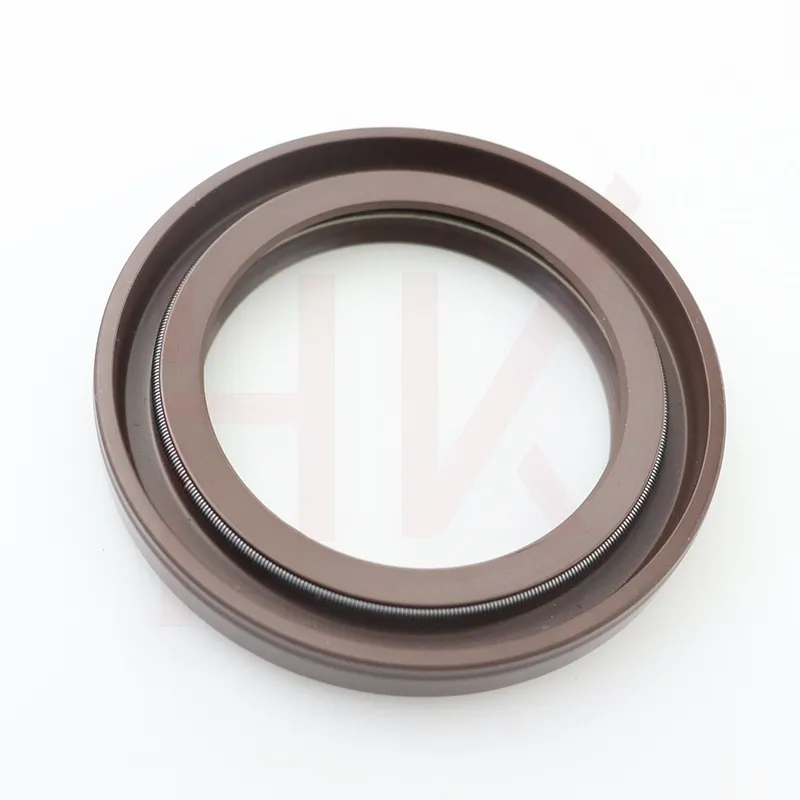Aug . 06, 2024 12:01 Back to list
Selecting the Right Oil Seal for Enhanced Pump Performance and Longevity in Various Applications
Understanding Oil Seals for Pumps Importance, Functionality, and Selection
Oil seals, also known as lip seals or rotary seals, are critical components in various mechanical systems, particularly in pumps. Their primary purpose is to prevent the leakage of oils and other fluids, thereby ensuring the efficient operation and longevity of pumps. This article delves into the significance of oil seals in pump applications, their essential functions, and considerations for selecting the right oil seal for specific needs.
The Importance of Oil Seals
Pumps are designed to facilitate the movement of liquids, whether in industrial processes, automotive applications, or consumer products. In any system where fluids are moved, maintaining a tight seal around the moving parts is crucial. Oil seals play an indispensable role in safeguarding against leaks, which can lead to several issues, including reduced efficiency, environmental contamination, and potential damage to the pump components. By effectively sealing the shaft and housing, oil seals also prevent dirt and other contaminants from entering the system, further enhancing the operation’s reliability.
Functions of Oil Seals in Pumps
The primary functions of oil seals in pumps can be outlined as follows
1. Leak Prevention Oil seals are designed to prevent the escape of lubricating oils and hydraulic fluids. This not only helps in maintaining optimal fluid levels but also minimizes maintenance costs associated with frequent refilling and repair.
2. Contaminant Protection In addition to sealing fluids in, oil seals also protect the internal components of pumps from external contaminants such as dirt, dust, and moisture. This is particularly important in harsh working environments where exposure to contaminants can lead to premature wear and failure.
3. Pressure Maintenance Many pumps operate under varying pressure conditions. Properly functioning oil seals help maintain the necessary pressure levels within the pumping system, crucial for efficient fluid transport.
4. Heat Resistance Pump operations can generate considerable heat, making it essential for oil seals to resist thermal degradation. High-quality oil seals can withstand temperature fluctuations without losing their sealing properties.
oil seal for pump

Selecting the Right Oil Seal
Choosing the appropriate oil seal for a pump is vital to ensure optimal performance and longevity. Several factors should be considered during this selection process
1. Material Compatibility Oil seals are typically made from elastomeric materials such as rubber, polyurethane, or silicone. It’s essential to choose a material compatible with the specific fluid being sealed and the operating temperature range.
2. Seal Design The type of seal design—single lip or double lip—will affect the sealing efficiency and contamination resistance. A double-lip seal may provide better protection in contaminated environments.
3. Shaft Dimensions Accurate measurements of the shaft diameter and width are critical for selecting a seal that fits snugly, preventing leaks and ensuring long-term performance.
4. Operating Conditions Consideration of the environment in which the pump will be functioning—such as the presence of chemicals, temperatures, and pressures—is crucial in selecting a seal that will endure the conditions without failing.
5. Reputable Suppliers Source oil seals from reputable manufacturers who offer quality certifications and warranties. This can significantly enhance reliability and performance.
Conclusion
Oil seals are integral to the functionality and efficiency of pumps. Their ability to prevent leaks, protect against contaminants, and maintain operational pressure and heat resistance cannot be overstated. By understanding their importance, recognizing their functions, and carefully selecting the right type of oil seal, operators can ensure optimal pump performance and extend the service life of their systems. Investing time and resources into selecting high-quality oil seals is a fundamental step in the maintenance and operation of any pumping system.
-
TCN Oil Seal Metal Ring Reinforcement for Heavy Machinery
NewsJul.25,2025
-
Rotary Lip Seal Spring-Loaded Design for High-Speed Applications
NewsJul.25,2025
-
Hydraulic Cylinder Seals Polyurethane Material for High-Impact Jobs
NewsJul.25,2025
-
High Pressure Oil Seal Polyurethane Coating Wear Resistance
NewsJul.25,2025
-
Dust Proof Seal Double Lip Design for Construction Equipment
NewsJul.25,2025
-
Hub Seal Polyurethane Wear Resistance in Agricultural Vehicles
NewsJul.25,2025
-
The Trans-formative Journey of Wheel Hub Oil Seals
NewsJun.06,2025
Products categories
















